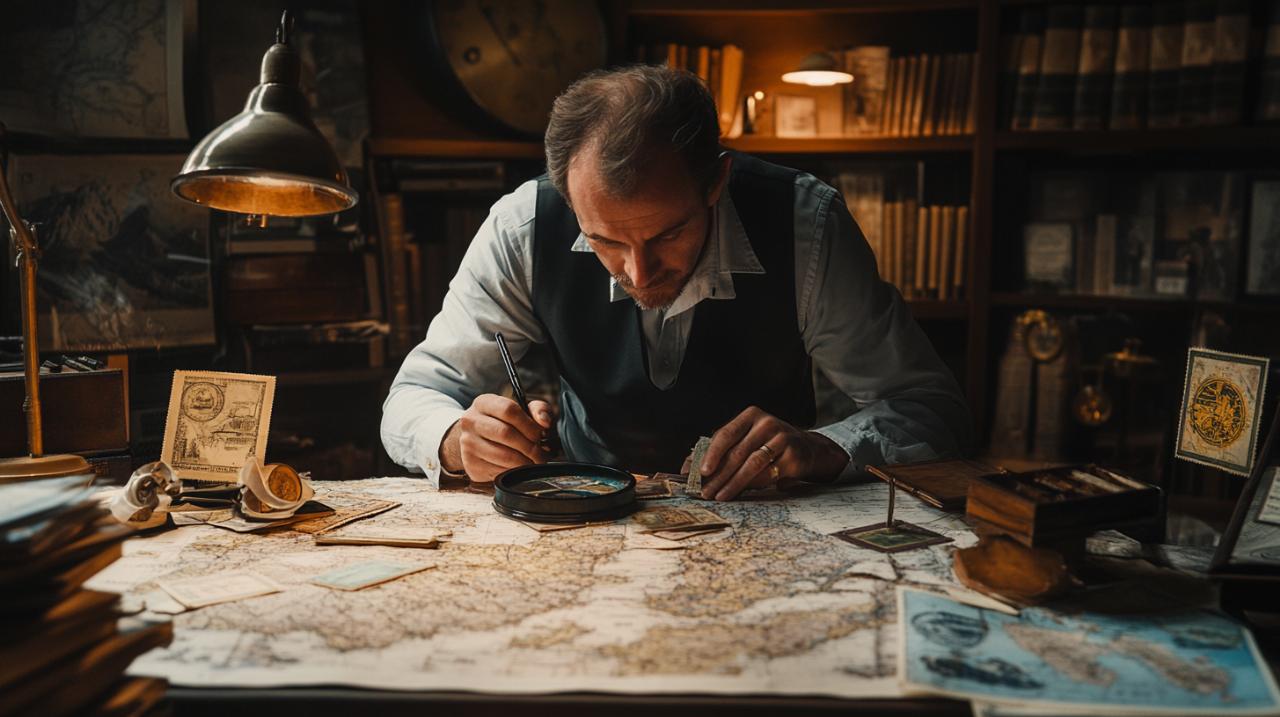For many enthusiasts, stamp collecting is more than just a hobby; it’s a passion that spans decades and even generations. But to truly appreciate and understand the philatelic worth of one’s collection, seeking a professional appraisal is a wise move.
What defines the value of a stamp collection?
The value of a stamp collection can be impacted by several factors including condition, rarity, and historical significance. Each of these elements plays a crucial role in determining how much your collection is worth on the market.
The importance of condition
Condition is paramount when evaluating a stamp’s worth. A well-preserved stamp with no tears, creases, or discoloration will always command a higher price compared to one in poor condition. Experts use various valuation techniques to assess the state of each stamp, looking at everything from centering to perforations. You can find more information regarding this on this page.
Scrutinizing every detail ensures that collectors receive an accurate understanding of their stamps’ worth. This helps in making informed decisions whether you are buying, selling, or merely insuring your collection.
Rarity and historical significance
Rarity considerably boosts the value of stamps. Stamps that were issued in limited numbers or face high demand often fetch a premium. Rarity isn’t solely about the number available; it’s also influenced by unique features like errors during printing.
Historical significance adds another layer to a stamp’s value. Pieces connected to significant events or eras hold immense attraction for collectors and historians alike. Understanding these facets requires expertise in evaluation, making professional opinions invaluable.
Why seek a trusted valuation?
Many collectors may find it challenging to appraise their own collections accurately. Their emotional attachment could skew perceptions, not to mention the technical knowledge required to conduct a proper appraisal process. Trusted valuation performed by professionals offers an unbiased assessment.
These specialists bring years of experience and deep knowledge of the philatelic market. They stay updated on trends, auction results, and are adept at recognizing subtle differences that affect value. This grounded theory approach ensures collectors get a realistic view of what they possess.
Accessing professional tools and resources
A distinguishing factor in professional evaluations is access to specialized tools and comprehensive databases. Experienced appraisers consult extensive catalogs and reference materials that encompass worldwide issues and variations, ensuring a thorough examination.
Moreover, notable volumes of auction records provide insights into market behaviors, defining factors driving prices up or down. Collectors benefit from this detailed data, which might otherwise be inaccessible to amateurs.
The appraisal process unveiled
The appraisal process typically begins with a preliminary inspection where key characteristics of the collection are noted. This step helps in identifying any standout items or potential problem areas needing closer scrutiny. Following this, the collection is methodically examined using standard criteria such as issue date, origin, and any noteworthy anomalies.
The next stage involves catalog referencing and price comparisons. Appraisers delve into current market prices, cross-referencing similar stamps to estimate values accurately. Expert guidance from industry insiders often supplements this phase, adding layers of depth and precision to the final assessment.
Communicating results and offering recommendations
Once the appraisal is complete, professionals communicate their findings comprehensively.
Detailed reports outline individual stamp values alongside overall collection worth, offering transparency and clear documentation. These reports might also recommend conservation measures or further actions to maintain or enhance value.
Collectors gain actionable insights enabling them to strategize: whether to hold onto rare pieces, sell off duplicates, or invest in complementary additions to strengthen their collections. Such conclusive summaries make the entire investment and effort worthwhile.
Long-term benefits of professional evaluation
Moving beyond immediate financial appraisal, having a professionally evaluated collection brings multiple benefits. For insurance purposes, documented valuations protect against loss, providing verifiable proof of worth should claims arise. Additionally, clarity on your collection’s value guides estate planning or charitable donations, ensuring appropriate recognition and tax considerations.
Engaging with experts fosters learning and deeper appreciation. Collectors often discover fascinating backstories and historic details that elevate the sentimental and educational aspects of their hobby. Enhanced knowledge also makes participation in clubs, exhibitions, or competitive displays more rewarding.
Maintaining relationships with appraisers
Building ongoing relationships with professional appraisers enriches the collecting journey. Regular updates keep valuations current, important as markets evolve and new discoveries come to light. Staying in touch with these professionals provides opportunities to tap into broader networks and join exclusive events.
Regular interactions ensure timely guidance on buying opportunities or disposing of items advantageously. Establishing trust and rapport with knowledgeable appraisers opens doors to richer experiences and wiser choices.
The essence of continuous learning
Philately thrives on curiosity and a thirst for understanding. Investing time and effort in mastering nuances enhances enjoyment and payoff. Gathering information from libraries, online forums, or joining philatelic societies complements professional advice, creating a robust knowledge base.
This diligent approach cultivates discernment, equipping collectors to identify gems and avoid pitfalls. Exploring thematic collections, country-specific issues, or topical stamps broadens horizons, adding diversity and intrigue. The joy of discovery remains intertwined with building monetary and intellectual capital.
Enriching community engagement
Partaking in fairs, conventions, and local club meetings connects collectors to vibrant communities. Sharing insights and stories fuels camaraderie, sparking friendships rooted in shared passions. Learning within these networks amplifies individual pursuits, generating collective wisdom.
Community-driven efforts like joint exhibitions or charity auctions extend the impact of philately beyond personal satisfaction. Collaborating with others elevates communal experiences, turning solitary hobbies into dynamic social engagements.


